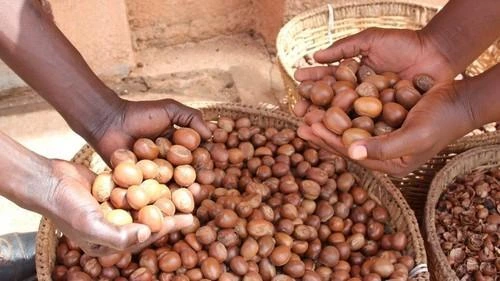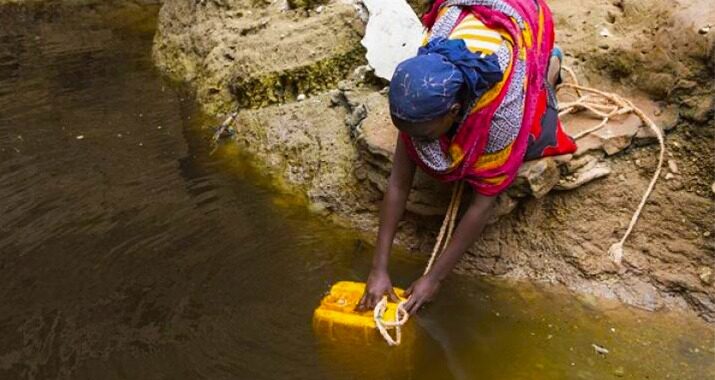Nigeria bans raw shea nuts export for 6 months to boost local processing

Nigeria has placed a six-month ban on exports of raw shea nuts which several beauty creams are made from.
This announcement stems from the fact that Nigeria is losing out due to its recent low production of shea butter locally.
The West African country is known to produce about 40% of the annual crop in the world; however, it only accounts for 1% of the $6.5bn global market. The Vice President, Kashim Shettima, described the situation as “unacceptable”.
In shea butter processing, the fruits are harvested from the shea nut tree, then crushed, roasted and boiled its oil which will be then be used in cosmetics.
In the food industry, the butter is also used in the production of sweets like ice creams and chocolates, as well as in some pharmaceuticals.
Mr. Shettima noted that the ban is temporary and would enable the country to shift from being just an exporter of the raw exporter to a supplier of refined shea butter globally.
”It is about industrialisation, rural transformation, gender empowerment and expanding Nigeria’s global trade footprint,” the vice-president said during the announcement at State House in the capital, Abuja.
In the short-term, Nigeria’s aim is to see the earnings of the fruit of the shea nut trees grow from $65m to $300m each year.
Adding his voice, Nigeria’s Agriculture minister, Abubakar Kyari stated that the giant of Africa produces about 350,000 tonnes per year, with almost 25% unaccounted for as they disappear over borders through unregulated informal trade.

 Children’s support fund raises ₵3.5m, $20k for helicopter crash victims
Children’s support fund raises ₵3.5m, $20k for helicopter crash victims  Gyakie drops debut 17-track album ‘After Midnight’ featuring 6 artists
Gyakie drops debut 17-track album ‘After Midnight’ featuring 6 artists  8 dead and dozen infected as cholera outbreak hits Northwest Nigeria
8 dead and dozen infected as cholera outbreak hits Northwest Nigeria  Ghanaians clash online over Akan ‘Akwaaba’ sign at Kotoka Airport
Ghanaians clash online over Akan ‘Akwaaba’ sign at Kotoka Airport